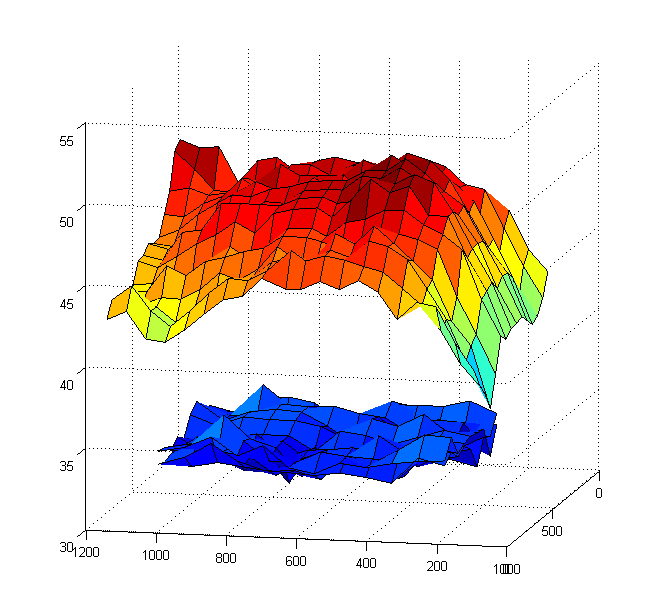|
Size: 758
Comment:
|
Size: 1025
Comment:
|
| Deletions are marked like this. | Additions are marked like this. |
| Line 7: | Line 7: |
| In order to achieve an as homogeneous as possible luminance across an LCD Monitor (NEC MultiSync® 90GX²Pro), we measured the luminances at different positions at different grey values. | In order to achieve an as homogeneous as possible luminance across an LCD Monitor (NEC Multi``Sync® 90GX²Pro), we measured the luminances at different positions at different grey values. |
| Line 12: | Line 12: |
{{attachment:kontrollmessung128_stationaer.png}} The overall luminance standard deviation across the screen was reduced by the correction to values of 0.68 cd/m² and 0,85 cd/m² respectively. Thanks to Leopold Zizlsperger for performing the measurements. |
Luminance Correction
In order to achieve an as homogeneous as possible luminance across an LCD Monitor (NEC MultiSync® 90GX²Pro), we measured the luminances at different positions at different grey values.
From this data, we calculated an alpha mask that is presented in front of the stimulus and reduces the luminance of every pixel to be as equal as possible to the one with the lowest measured luminance. An optimal correction was assumed to be at 75 cd/m².
Then we performed another two measurements, to check the goodness of this luminance correction. To achieve a time invariant state, we had to wait for 2,5 hours after switching the monitor on.

The overall luminance standard deviation across the screen was reduced by the correction to values of 0.68 cd/m² and 0,85 cd/m² respectively.
Thanks to Leopold Zizlsperger for performing the measurements.
